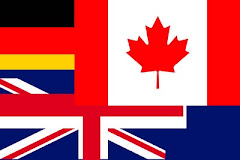When I arrived to teach week 3, I was told I might not have Internet connectivity as the electricity had been out for several hours due to the high winds. Not a problem as that was not the focus of the class. I did check it while I was waiting for the students to arrive and I did have it, so it was there if I needed it.
We began with looking at the obituary that I had given them the previous week. This obituary was filled with lots of information about John Wright and his family. The purpose was to see what we could learn from it and then develop a plan on what more could be learned about him from the clues presented in the obituary. There were lots. Some of the class had done some searching in censuses, FamilySearch and one a reference in a book through Google Books. One census showed a son that was not listed in the obituary. The second wife may not have known about him.
Some had questions about automatedgenealogy searches so we went online to see what they had found. I gave them tips on how to narrow searches with the various filters and the ability to sort geographically.
Next it was time to look at Estate Records and the types of information that might be found in them. I showed examples of Estate records of three generations from my Hemingway family.
Josiah Hemingway's estate papers do not include any reference for the date of his death but includes the date of registration (28 December 1851) and the date the inventory was taken. The will was interesting as he included the stipulations that the heirs could not sue and the decision of three of his friends who were also his executors was binding and that his wife Anna would be maintained out of the property, in lieu of dower, as long as she didn't remarry .
The two eldest sons only received one pound each. [Land records likely will show that they had already received land.] Son Benjamin was to receive 20 to 30 Acres more than Moses. Now this might not have been a problem but Benjamin died several months later on 22 December 1851 without a will and before the property had been divided.
Benjamin's wife Harriet petitioned for guardianship. Six of the children were from Benjamin's former wife. Harriet and Benjamin had one baby. The names and ages of the children are listed. She applied for guardianship to be shared with family friend, Henry Sanders. Harriet was worried that her eldest son William, heir at law would not receive his father's share of property and that it would not be done fairly. The estate papers include detailed financial records as payments were made to old Mrs. Hemingway for her dower and other items such as school books.
These records were very important to me in my research as previous researchers had only mentioned two of Benjamin's children and these had been raised by Anna Holditch.
The third estate papers were those of Pauline (aka Perlina Ann) Hemingway. She died in 1904. Her will lists who would receive money from her estate. Included in the file was the list of the heirs, their relation to the deceased, their address and how much they would each receive. This was needed because of the Succession Act. One brother and one sister were to each receive one dollar. Several in her list were not related and some were cousins. Her half sister was to receive the residue after the division of the estate. After everything was divided, she received $948. This information gives further clues for more research.
The last will I talked about was that of my great-great-great grandmother Margaret Johnston who had itemized the items and who were to receive them. This gives an insight into her life.
We ended the evening talking about citations and their importance with an introduction to the formats used for different types of materials.
Once again, we had a very full evening. Next week is the last class.
Subscribe to:
Post Comments (Atom)





No comments:
Post a Comment
Comments are moderated before being posted. Please no links in your comments. The blog author reserves the right to not post a comment if deemed inappropriate.